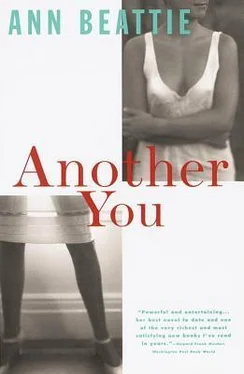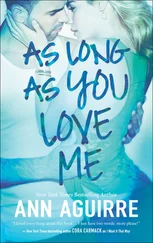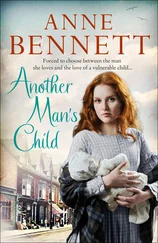Ann Beattie - Another You
Здесь есть возможность читать онлайн «Ann Beattie - Another You» весь текст электронной книги совершенно бесплатно (целиком полную версию без сокращений). В некоторых случаях можно слушать аудио, скачать через торрент в формате fb2 и присутствует краткое содержание. Год выпуска: 2014, Издательство: Vintage Books, Жанр: Современная проза, на английском языке. Описание произведения, (предисловие) а так же отзывы посетителей доступны на портале библиотеки ЛибКат.
- Название:Another You
- Автор:
- Издательство:Vintage Books
- Жанр:
- Год:2014
- ISBN:нет данных
- Рейтинг книги:5 / 5. Голосов: 1
-
Избранное:Добавить в избранное
- Отзывы:
-
Ваша оценка:
- 100
- 1
- 2
- 3
- 4
- 5
Another You: краткое содержание, описание и аннотация
Предлагаем к чтению аннотацию, описание, краткое содержание или предисловие (зависит от того, что написал сам автор книги «Another You»). Если вы не нашли необходимую информацию о книге — напишите в комментариях, мы постараемся отыскать её.
Another You — читать онлайн бесплатно полную книгу (весь текст) целиком
Ниже представлен текст книги, разбитый по страницам. Система сохранения места последней прочитанной страницы, позволяет с удобством читать онлайн бесплатно книгу «Another You», без необходимости каждый раз заново искать на чём Вы остановились. Поставьте закладку, и сможете в любой момент перейти на страницу, на которой закончили чтение.
Интервал:
Закладка:
That night in the restaurant Miles was very solicitous of me. He wanted me to take him skiing the next day, before he left Montreal. My father had an appointment he could not break, though he left the table twice to telephone, hoping things could be rearranged so he could come along. Did he really want to come along? I’m not saying he could see the future, only that he deferred to Miles, respected him greatly and quite simply deferred to him, as so many people did. He might have guessed that Miles would prefer to be on the ski slopes with me, alone. There is no reason to imagine that my father, in the restaurant bathroom, smoking a cigar, pacing back and forth to allow time to elapse, only pretended he was trying to rearrange the next day’s business. Yet I do have that feeling. It’s because he told me when I was a little girl that he did that, sometimes: had the men’s room attendant light a good cigar for him, so he could have a few puffs and allow whatever was happening at the table to reach a certain crucial point before he returned. Then, later, he’d go back to the men’s room and have the attendant relight the cigar, so he could have a few last puffs. Miles, himself, did not smoke cigars, but he did enjoy brandy. He and my father ordered two brandies before the night ended. My mother would have hated being there. The brandy was always her cue to leave the table, and she hated to be sent away just when things were getting interesting, she said. Yet my father did not give me a cue that I should leave, so I sat there, not quite understanding what they were saying about Haile Selassie, I think it was. A name almost forgotten now. “It is us today,” I remember my father intoning, shaking his head and raising his brandy snifter in a toast. I sat there in my mother’s dress with its dropped waist that no one could see once I was sitting down, but I knew it was lovely, with a drooping bow at my left hip, and I felt so grown-up. She would be proud of me , I thought. I had graciously and immediately agreed to take Miles skiing le jour prochain . I had not been asked to leave the table when the conversation turned serious. Neither my father nor Miles felt sympathy toward Haile Selassie, as I recall. Noses buried in their brandy snifters, they snorted instead of inhaling. “You understand that the man is asking the age-old question, ‘Am I my brother’s keeper?’ ” my father said to me. I had not been fidgeting. I had been trying to follow what they said, though they spoke so elliptically, or at other times so softly, that it would have been difficult, even if I had known the exact subject being discussed. I had assured my father I understood entirely. What I must have looked like, sitting there in my grown-up dress, speaking so seriously. The next day, on the ski slopes, Miles asked me: “Don’t you smile?” A strange question, I came to think when I knew him a bit better, because he so rarely smiled himself. At any rate, he was not smiling when he took the call in the hotel room that evening when he stepped out of his shoes, loosened his bow tie. When he stood there, saving his life, saving mine, though he had no idea that was what he was doing. I felt bad enough about being there, about going to Boston behind Alice’s back, on the day she had gone to Rhode Island to visit her friend Amelia. I mean, there I was in my peach silk, and she had a slight cold, herself, and of course she also had Gordon and baby Martin. Still, there the two of us were, sitting peacefully in the Ritz sipping champagne, to say nothing of the fact we were about to go to a lavish wedding reception with oysters Rockefeller and other wonderful food and enjoy a night of dancing. We were all preoccupied with the war, tired out by the children, exhausted, frustrated and exhausted, yet she’d dressed Gordon in a new outfit and put the baby in the stroller and insisted upon setting off by train to visit Amelia at her parents’ house in Rhode Island, refusing to listen to Miles’s suggestion that she wait until the weekend, when he could take us all by car. She could have been in Rhode Island when she got the news — if such news had been forthcoming. It wasn’t, though. We did not burn in the fire. Having missed too much of the festivities, we made love in the big bed inside our room at the Ritz — only the second time since I’d given birth to Martin — and it was not until much later that we heard the news, shouted by someone in the hotel corridor, that a terrible fire was raging. This came to mind because tonight a folk-singer — a long-haired folksinger, a perfectly nice young man with long hair and daydreams in his eyes — came to the nursing home and entertained us after dinner by playing the guitar and singing. He sang songs by James Taylor and by Carole King. I recognized most of them. One of the women, feeling mischievous, asked for “Hot Time in the Old Town Tonight.” He had a nice way about him, and he tried to play it, but none of the old fogeys, myself among them, could remember the name of the woman who’d put a lantern in her shed. So it was: “Old Mrs. Something put a lantern in her shed / Cow kicked it over, and this is what she said / ‘There’ll be a hot time in the old town tonight.’ ” The man’s voice announcing the fire at the Cocoanut Grove seems like yesterday. It was almost unprecedented to hear anyone speak above a whisper in 1942 in a hotel corridor.
In 1936 I was such a naive girl. What I knew about sex was that when a man and woman married, the woman must listen earnestly when the man explained something important to her. That was what my mother had told me; that one day I would be told “something important.” Though I menstruated, I did not connect that with sex. How it ever came clear to me, I don’t exactly recall. Because when I was pregnant with Martin, the doctor, unsolicited, volunteered that after giving birth to a baby, my cramping would end. “Cramping?” I asked him. “Yes,” he said. “You don’t have menstrual cramps?” I was shocked to hear him say the word aloud. He was quite affable — a friend of Miles’s who had attended medical school at Yale during the same years Miles was there. I think he talked so much because he was trying to be friendly, though actually he was quite uncomfortable: his friend’s mistress — well, I’d never known the word had that other meaning, until it became obvious by the context in which Alice used the word that awful day we sat in the living room of the house in Maine and he told her everything, that I was someone’s mistress . Whatever name she gave me, I was terrified. I was certain I was going to be sent back to Montreal, and as much as I feared my parents’ disappointment — they thought the United States was another world, a superior country, and I would have been ashamed to have failed there, to have failed at making Alice like me, in spite of everything I’d done setting up the house, in spite of the bulbs planted, the dinners cooked — if you can believe such a thing, there was actually a time when I thought that it was fine to sleep with a woman’s husband because he requested it. I assumed that was my responsibility toward being part of the family. There were secrets my mother had kept from my father: money put away in food jars; the scrawny cat she sometimes set a saucer of milk out for, at the same time he was trying to run it off. In my innocence, I simply thought that sex was a secret Miles and I were keeping from Alice, like a saucer of milk placed under the bushes. It seems difficult to believe, but you have to take it on faith I didn’t know any different. I believed in Santa Claus as a real man who came from the North Pole until some girls set me straight when I was eleven years old. I thought fairy tales were interchangeable with stories in the newspaper long past the time when everyone else understood they were just made-up stories. Though I did not like sex, and I certainly did not want to be pregnant, especially because I had been horrified to have to spread my legs in a doctor’s office and feel his hand inside me — although I considered it a personal failure that had caused misery to everyone and would no doubt cause further misery once my parents found out, I nevertheless did like Alice, so when she raged at me, my heart was broken. If she had not spoken to Amelia and gone through a sea change, I would have died of a broken heart. This many years later, I can only wonder what Amelia must have said to her that caused such a change. Suddenly Alice accepted everything, taking both my hands in hers and apologizing to me, though I don’t remember her apologizing to him. While Martin was just a tiny fetus inside me, it had been decided that the child I carried would be their child. No one would know any different. We would go abroad, and I would give birth there. That plan did not materialize, of course: the war continued, and everything changed. We ended up hiding from people, beginning in my fourth month, in the house in Maine. Miles’s friend from Yale arranged for a doctor to watch my pregnancy, and to send a young colleague of his to be present, along with the local doctor, at the birth. It was decided that nothing would be said to my parents. I was so grateful for that, it was the biggest relief of all. When I wrote them or spoke to them, the baby was the one thing I never mentioned. In all the world, the only people who knew — except for Gordon, who was too young to understand — were Amelia, the doctors, and Miles’s friend Ethan Bedell, who came unannounced and opened the front door without knocking and walked in on us, when I was hugely pregnant. It is so easy to forget that people have their personal preoccupations. When they encounter the unexpected realities of others’ lives, their preoccupations nevertheless continue just as strongly. He was there, if you can believe it, because he feared for the health of the painter Grant Wood; though he did not fear for Wood’s mortality, he feared Miles would fail to acquire important paintings before Grant Wood’s death. “You didn’t listen to me about The Black Flag ,” I remember him saying. “You must absolutely listen to me now.” Alice always maintained that Ethan Bedell was the only man she’d ever heard of who went to fortune-tellers. A fortune-teller had predicted the untimely death of someone very talented, known to Ethan only through his work, not personally, and Ethan had jumped to the conclusion the man was talking about the death of Grant Wood, whose painting Death on Ridge Road he interpreted as a curious departure, a harrowing vision of the painter’s own death. After registering his initial shock in how he found us, he recovered himself quickly, then launched into a heartfelt description of the paintings of Grant Wood, pulling one photograph after another from his briefcase, seizing Miles’s hand as if he could, in the moment, press him into buying whatever paintings were available. Alice and I had to leave the room, we were so overwhelmed by Ethan’s fervor. “God — that awful picture of the farmer standing by the ugly woman and the pitchfork!” she had squealed, as we went upstairs.
Читать дальшеИнтервал:
Закладка:
Похожие книги на «Another You»
Представляем Вашему вниманию похожие книги на «Another You» списком для выбора. Мы отобрали схожую по названию и смыслу литературу в надежде предоставить читателям больше вариантов отыскать новые, интересные, ещё непрочитанные произведения.
Обсуждение, отзывы о книге «Another You» и просто собственные мнения читателей. Оставьте ваши комментарии, напишите, что Вы думаете о произведении, его смысле или главных героях. Укажите что конкретно понравилось, а что нет, и почему Вы так считаете.












